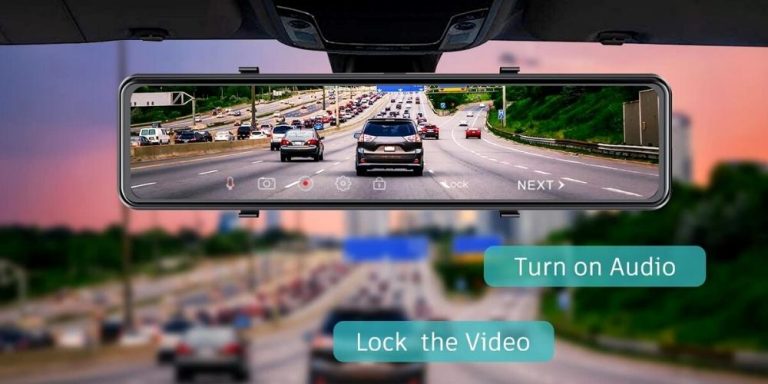Is it Good to Have GPS in a Dash Cam? A Personal Perspective
Ben Wells is a tech enthusiast specializing in cameras and GPS devices. He has a keen interest in reviewing dashcams, navigators, and other useful car...
GPS technology has transformed our lives, seamlessly integrating into various devices like smartphones, tablets, watches, and even dash cams. Its applications range from navigation and tracking to mapping and velocity measurement. As someone who values thorough evaluation before adopting new gadgets, I delved into the advantages and disadvantages of having GPS in a dash cam. Let me share my personal experience and insights to help you make an informed decision, balancing functionality, convenience, and cost.
Advantages of Having GPS in a Dash Cam
I remember when I decided to invest in a dash cam with GPS. I had been hearing a lot about the benefits of having one, and I thought it would be a valuable addition to my car. I did some research, read customer reviews, and chatted with friends who already had GPS-enabled dash cams. After weighing the benefits and disadvantages, I finally made the decision to purchase one. Here I go, unveiling the hidden gems of GPS-enabled dash cams.
1. Location and Time Stamp: A Precise Record of Moments
Imagine engaging in a conversation about a recent incident or accident. Dash cams with GPS can provide you with invaluable evidence by embedding precise location details and time stamps into video footage. This powerful combination proves instrumental in legal matters, helping you track and resolve issues efficiently. It’s like having a time machine that can transport you back to the exact moment in question, armed with irrefutable evidence.
2. Speed Tracking: Navigating the Roads Responsibly
As you regale your friends with tales of road adventures, having a GPS-enabled dash cam can be your trusted companion. It effortlessly tracks your vehicle’s speed during your journeys, ensuring that you stay within legal speed limits. In unfortunate events such as accidents, this crucial speed and location data can play a pivotal role in determining fault accurately. It’s like having a vigilant co-pilot nudging you towards responsible driving habits.
3. Monitoring Purposes: A Virtual Assistant for Safer Journeys
GPS in dash cams serves various monitoring purposes, transcending beyond mere conversational anecdotes. Law enforcement agencies rely on it to identify the causes of incidents, parents can keep a watchful eye on their teenagers’ driving habits, and fleet managers can generate insightful reports for better compliance with traffic laws. It’s like having a diligent virtual assistant monitoring your driving behaviour, promoting safer journeys for everyone involved.
4. GeoFencing: Redefining Boundaries
In discussions about setting boundaries, high-end dash cams with GPS offer an ingenious feature known as geofencing. It provides real-time alerts regarding speed and location, ensuring that designated areas and speed limits are respected. This feature proves particularly beneficial for individuals employing chauffeurs or personal drivers. With geofencing, you receive timely notifications when the vehicle exceeds predefined boundaries or speed limits, fostering a sense of control and accountability.
5. Enhanced Security: Protecting What Matters
Just as conversations revolve around protecting loved ones, dash cams with GPS contribute to vehicle security. In the unfortunate event of theft, GPS tracking helps law enforcement locate and recover stolen vehicles swiftly. This feature offers peace of mind and ensures the safety and security of your valuable assets. It’s like having a guardian angel watching over your car, ready to come to its rescue when needed.
Disadvantages of Having GPS in a Dash Cam
It’s important to mention that there were a few downsides to consider. The extra cost was one of them. I had to invest a bit more in a GPS-enabled dash cam compared to a regular one. Additionally, if you already have a dash cam, purchasing a separate GPS module can further increase the overall cost. It required careful budgeting and consideration of the benefits against the investment. On the opposite of the good side, here I go weighing the costs and considerations.
1. Extra Cost: Balancing the Budget
While engaging in conversations about budgets, it’s crucial to consider the cost implications. Dash cams with built-in GPS may come with a higher price tag compared to those without GPS functionality. Additionally, if you already own a dash cam, purchasing a separate GPS module can further add to the overall cost. It’s a delicate balance of weighing the benefits against the investment and deciding if the added functionality justifies the price.
2. Privacy Concerns: Delicate Conversations About Personal Space
In the midst of conversations surrounding technology, the topic of privacy often emerges. Some individuals may have concerns regarding constant location tracking by a GPS-enabled device. It’s vital to evaluate your comfort level with this aspect before opting for a GPS-equipped dash cam. Engage in introspection and consider the trade-off between added functionality and potential privacy implications to make an informed decision.
3. Dependence on Car Battery: Practicalities and Power Consumption
As we engage in practical discussions, it’s worth noting that most GPS modules rely on the car’s battery for power, typically utilizing the 12V cigarette lighter port. While convenient, this reliance can drain power from the battery, potentially impacting its life. Furthermore, improper installation may result in cluttered wiring, compromising both aesthetics and functionality. Consider the impact on your vehicle’s battery life and the installation process to ensure seamless integration.
Conclusion of My Personal Journey
Having a dash cam with built-in GPS is like embarking on a journey with a reliable co-pilot. It not only captures the road ahead but also provides accurate satellite navigation, enhancing your driving experience. These devices offer features like journey planning, route selection, live traffic reports, points of interest (POI) location, real-time fuel prices and information sharing, hands-free calling, and live maps to help you avoid congested roads. If you value accurate documentation, safe driving habits, and added security, a GPS-equipped dash cam might be the perfect choice for you. Embrace the power of this innovative technology, make an informed decision based on your needs and preferences, and enjoy the benefits of a safer and more connected driving experience. May your journeys be filled with insightful conversations and safe travels!
- Latest Posts by Ben Wells
-
Best High Temperature Dash Cam
- -
Best Mirror Dash Cam UK
- -
Best Dual Dash Cam under £100
- All Posts









